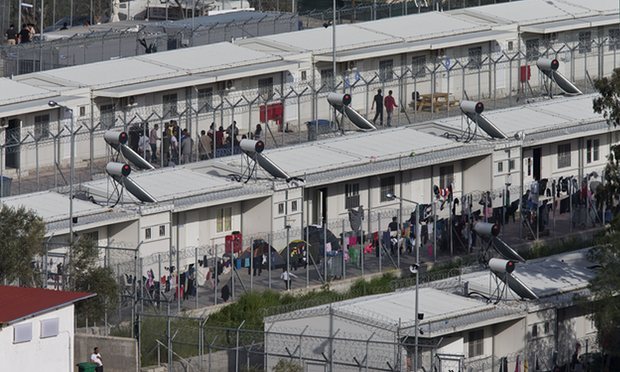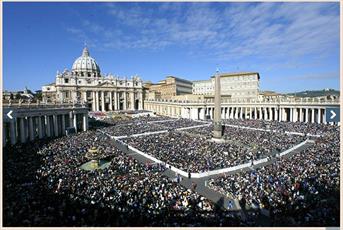Hawzah News Agency-Entering camps as aid workers, groups of Christian missionaries have been distributing copies of the Bible and conversion forms in Arabic to Muslim migrants held at detention centre on Lesbos, in a bid to affect people escaping death in the Middle East war.
“It’s a big problem because a lot of the people are Muslim and they have a problem with changing their religion,” Mohamed, a refugee from Damascus who was held in Greece’s most notorious asylum detention centre, told.
“They were trying this during Ramadan, the holiest Muslim month.”
Aid workers have distributed conversion forms inside copies of Arabic version of St John gospel to people in the Moria detention camp on Lesbos, who have been held under the terms of the EU-Turkey migration deal.
The forms invite asylum seekers to sign a statement declaring the following: “I know I’m a sinner … I ask Jesus to forgive my sins and grant me eternal life. My desire is to love and obey his word.”
The camp is overseen by the Greek migration ministry, but aid groups perform most of the day-to-day management.
“I have already taken action, so that our volunteers know very well that they should not distribute any kind of literature,” Euro Relief’s director, Stefanos Samiotakis, said.
Muslim asylum seekers who received the booklet said they found the aid workers’ intervention insensitive.
“We like all religions, but if you are a Christian, and I give you a Qur’an, how would you feel?” Ahmed, another Syrian, said.
Between January 2015 and March 2016, about a million asylum seekers had been allowed to move onwards through the Balkans after landing in Greece from Turkey.
But in March, Macedonia shut this humanitarian corridor by closing a crossing point on the Greek-Macedonian border.
A few days later, the EU agreed a deal that could see all those landing in Greece after 18 March deported back to Turkey, in a deal that rights groups say contravenes international law.
The moves have stranded up to 57,000 asylum seekers in Greece – most of them on the mainland, and a few thousand detained on Greek islands such as Lesbos, in overcrowded camps like Moria.
Detained refugees have criticized the conditions, which triggered riots with many of detainees speaking of a general sense of fear, lawlessness and hopelessness.
“We see violence almost every day,” said Fatima, a Syrian detained inside Moria with her husband and three-year-old daughter.
“We don’t feel safe here, we don’t feel comfortable here.”



Your Comment